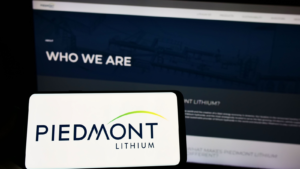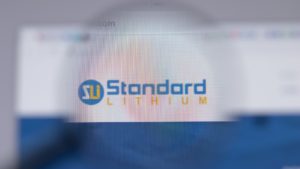Source: Olivier Le Moal/ShutterStock.com
The lithium market has been on a rollercoaster ride over the past few years.
But recent developments suggest that the tide may be turning in favor of investors eyeing lithium stocks. According to industry experts and market analysts, the spot price of lithium carbonate and spodumene, two of the most critical raw materials used in lithium-ion batteries, appears to have bottomed out and stabilized. This indicates a potential upswing in the near future.
The gradual depletion of lithium inventories, particularly in China, fuels this optimism. It owns the title of world’s largest consumer and producer of lithium-based products. China’s lithium industry holds a significant sway over global prices. And any fluctuations in its supply-demand dynamics can ripple across the entire market. As inventories dwindle, the stage is set. A positive short-term catalyst could propel undervalued lithium stocks to new heights.
Let’s explore three such undervalued lithium stocks for investors to buy this month.
Piedmont Lithium (PLL)

Source: T. Schneider / Shutterstock.com
Piedmont Lithium (NASDAQ:PLL) has rapidly increased production. The company benefits from its strategic position in the U.S. electric vehicle (EV) supply chain. And PLL certainly plans further expansion into large-scale lithium projects.
Last year, the company secured a mining permit for its Carolina Lithium project. It aims to establish a low-cost, sustainable lithium hydroxide operation in North Carolina. And, Piedmont Lithium plans further cost reductions and expects to positively impact cash flow,
Also, PLL will continue expanding large-scale lithium projects. The company is aiming to further cement its role as a critical supplier for the burgeoning EV market.
A key reason I’m bullish on PLL is that its EPS is set to surge an incredible 390.17% in fiscal year 2025. This is the EPS consensus from seven analysts, so I feel that it’s definitely worthwhile for investors to consider adding to their portfolios.
Albemarle Corp. (ALB)

Source: IgorGolovniov/Shutterstock.com
As the largest lithium stock by market cap, Albemarle Corp.(NYSE:ALB) remains a staple in the sector.
Moreover, ALB plans to reduce its capital expenditures to between $1.6 billion and $1.8 billion, down from approximately $2.1 billion in 2023. Also, Albemarle Corp. is implementing cost-cutting measures, aiming to reduce costs by approximately $95 million annually,
Additionally, ALB anticipates that its energy storage segment will continue to grow, projecting an increase in volumes by 10% to 20% in 2024. This growth is expected despite flat market pricing, with net sales forecasts ranging from $5.5 billion to $7.6 billion.
So, Albemarle Corp. could then be perhaps one of the best blue-chip plays for investors seeking undervalued lithium stocks. Therefore, despite its market cap, plenty of upside potential is left over for investors.
Standard Lithium (SLI)

Source: Postmodern Studio / Shutterstock.com
Standard Lithium (NYSE:SLI) focuses on high-grade lithium brine resources. The company has made considerable progress in its Phase 1A project. This includes finalizing feasibility studies and initiating the commercial scale-up of its lithium extraction technologies.
Standard Lithium plans for a modest scale-up from its demonstration plant, aiming to produce battery-quality lithium carbonate starting in 2026. Additionally, a Preliminary Feasibility Study for its South West Arkansas Project has indicated the potential for a significantly larger operation.
Also, last year, the company reported a high lithium recovery efficiency of 96.1% using its Direct Lithium Extraction (DLE) process at its demonstration plant. It had processed a substantial volume of brine from the Smackover Formation.
Therefore, these developments position SLI in excellent shape moving forward, one in which investors should seriously consider.
On the date of publication, Matthew Farley did not have (either directly or indirectly) any positions in the securities mentioned in this article. The opinions expressed are those of the writer, subject to the InvestorPlace.com Publishing Guidelines.










